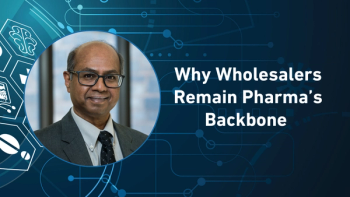
- Pharmaceutical Commerce - July/August 2013
Medical Affairs' changing role in market access and reimbursement
With the shift toward evidence-based medicine and value-based pricing, the needs of payers are evolving. Whereas in the past a pharmaceutical organization’s Market Access and Reimbursement (MA&R) group would primarily engage payers around the economic benefits of a product, payers are now increasingly interested in patient outcomes data and clinical evidence supporting the product. Some of the large payers, such as Aetna or United Healthcare, go even further, seeking heavy medical representation from pharma in order to conduct multi-year studies to evaluate outcomes.
As a result, the role the Medical Affairs (MA) organization plays in supporting MA&R has expanded as medical science liaisons (MSLs) are called upon to interface and engage with payers to discuss the science behind the drug. Meanwhile, companies are beginning to transition the health economics and outcomes research (HEOR) function out of the Commercial organization where it traditionally resides and are aligning the function under MA. Adding HEOR responsibilities to MA has major implications, however, in terms of interactions with stakeholders, the way interactions are documented, and the activities and skill sets that will be required.
Recently, Campbell Alliance brought together MA leaders from a diverse range of pharmaceutical and biotechnology companies as part of its annual Medical Affairs Leadership Summit. In a survey of 17 Summit members, 68% of respondents cited HEOR knowledge as one of the unique skills expected from the MA resources providing MA&R support. Other skills cited by more than half of respondents include payer market/managed care knowledge and health outcomes and/or health economic study design and execution experience. Depending on the level of MA&R support needed, companies will have to determine the best approach for building HEOR capability, whether that means training existing MSLs or creating a separate, specialized HEOR role.
The nature of communications with MA&R stakeholders is seen as different from traditional MSL communications, with some organizations allowing proactive communication with payers. Most dedicated MSL groups, meanwhile, respond reactively to specific requests. Companies will need to give this issue a lot of consideration, particularly in terms of how it impacts compensation.
Because most MA&R groups are currently under the commercial organization, the personnel are compensated similarly to sales representatives. Compensation is based on getting drugs on formulary and increasing access as measured by sales or volume. But if elements of this function are integrated under the MA organization, this type of metric would be challenging under the regulatory restrictions that govern MA.
Another important issue around compliance is in how conversations are documented. Everything that an MSL does has to be documented because of the regulatory requirements around non-promotional activity. For the individuals who are currently providing payer support, the same level of diligence is not required in documenting their conversations or rationale. If and when those individuals are brought under MA, companies will be faced with the issue of finding common ground for documenting conversations depending on whether they are allowed to be proactive or purely reactive. Integrating and managing that diligence level could prove to be a challenge.
The evolution of healthcare systems will dictate the need for MA&R support globally. In the US specifically, the implementation of healthcare reform will bring about a redesign of payment structures and service delivery models, shifting the management of clinical and financial risk from payers toward providers. Of all the various models and concepts that the Affordable Care Act promotes, accountable care organizations (ACOs), comparative effectiveness research, and value-based pricing are most likely to have a significant impact on access and reimbursement. As these new models take effect, MA organizations will need to discuss these issues with payers to see if any common ground exists between the payer and the pharma company.
As the implementation of healthcare reform is still in its infancy, many unknowns exist in terms of implications. Companies would be advised to stay on top of future developments as they emerge in order to build an understanding of what is going to be required to support payers in the future.
ABOUT THE AUTHORS
Mike Menta is senior vice president, Medical Affairs Center of Excellence, Campbell Alliance. He can be reached at [email protected]. Thao Sutter is a senior engagement manager, Campbell Alliance. She can be reached at [email protected]. For more information on Campbell Alliance’s Medical Affairs Leadership Summit, visit www.campbellalliance.com/MAsummit.
Articles in this issue
over 12 years ago
At ASCO meeting, McKesson showcases US Oncology capabilitiesover 12 years ago
Cold Chain GDP & Temperature Management Logistics Global Forumover 12 years ago
GHX and the VHA e-pedigree pilotover 12 years ago
The value of real-world data in drug commercializationover 12 years ago
NABP is on its way to owning the .Pharmacy domain suffix (gTLD)over 12 years ago
Outsourced facilities management saves precious financial resourcesover 12 years ago
How about a US Chamber of Healthcare Commerce?over 12 years ago
Overcoming operational silos in pharma revenue managementover 12 years ago
Biosimilars: It's a matter of timeNewsletter
Stay ahead in the life sciences industry with Pharmaceutical Commerce, the latest news, trends, and strategies in drug distribution, commercialization, and market access.



